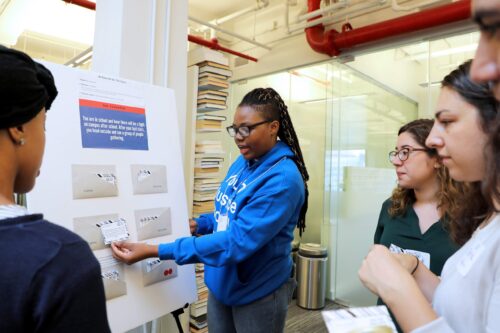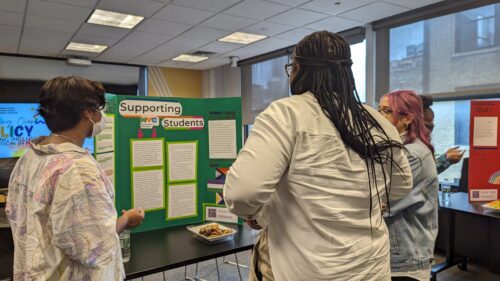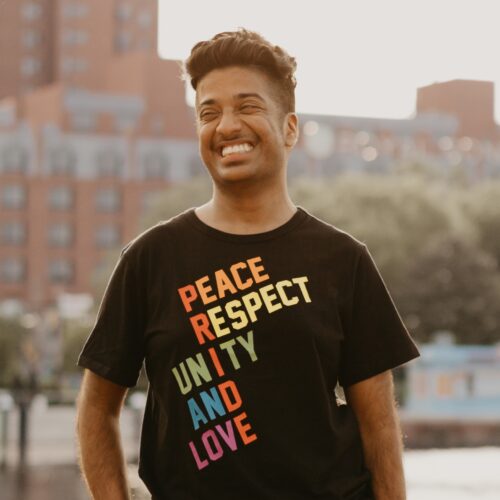A public policy fellowship for young New Yorkers to research and analyze topics that affect young people’s safety and agency.
The Youth Action Institute is a public policy research fellowship that supports young New Yorkers in investigating and identifying solutions to the issues and policies that affect their lives. Fellows with the Institute explore topics that affect young people’s safety and agency, particularly as those issues intersect with public safety and the legal system. They offer their research findings and thoughtful, actionable policy recommendations to support better outcomes and experiences for impacted young people.
About the Program
Each year, a cohort of up to 20 New York City youth researches a current public safety issue and formulates policy recommendations to address the needs of impacted young people. Fellows are between the ages of 16 and 21 and represent a cross section of neighborhoods and backgrounds. They are selected for the program based on their experiences, interests, and commitment to working on long-term projects. Fellows have firsthand experience of the issue they will be researching, such as foster care or housing instability.
Fellows are rigorously trained in anti-oppression practice, qualitative research, the policy landscape of New York City, and the intersections of those areas. Following training, Fellows identify their policy and issue areas of interest and craft an overarching research question to focus on. After their initial research process, they craft preliminary recommendations to improve outcomes for young people, then narrow their research question to support a second iteration of this research process. Upon completing their second phase, Fellows refine their preliminary recommendations and present them to stakeholders within community-based organizations, government offices, and advocacy groups for feedback and dialogue. Fellows then take those final recommendations and prepare materials for publication, advocacy, and sharing across a range of audiences, such as white papers for practitioners and policymakers, interactive workshops for other youth, or social media toolkits for general public education.



